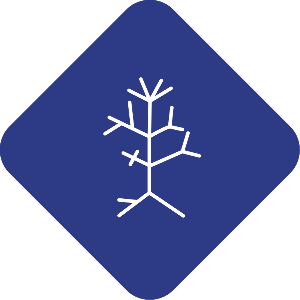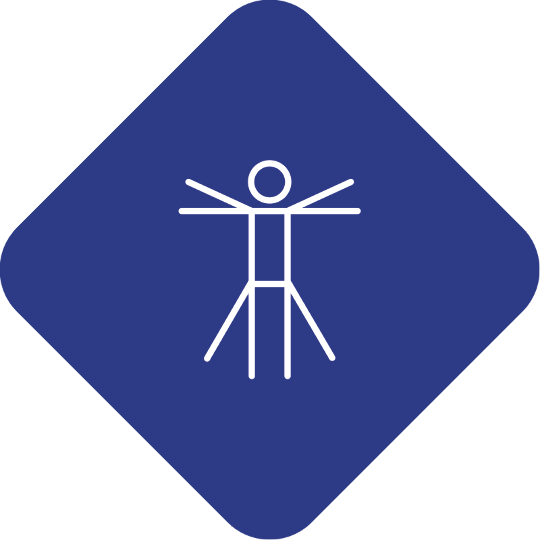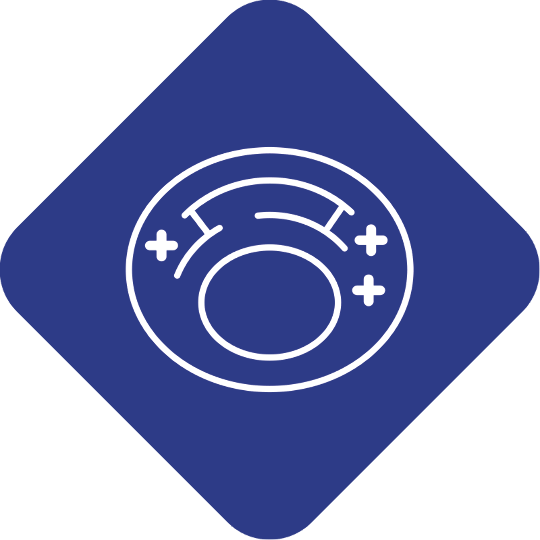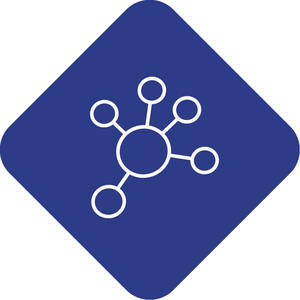Join Our Tech Talent Scheme: Empower World-Class Science at The Wellcome Sanger Institute

Applications will open in April 2026. In the meantime, why not explore the other exciting roles we’re currently offering on our Job Site
Join us in supporting world-class science at The Wellcome Sanger Institute!
Why Choose Sanger Institute?
- Unique Work Environment: Experience life at Sanger Institute on our 130-acre campus just outside Cambridge. Join a diverse community of 1100+ employees from 70+ nationalities.
- Work-Life Balance: We value work-life balance, offering flexible work arrangements to support your well-being.
- Professional Development: Access a wide array of campus-run courses, networking events, and professional development opportunities. Receive mentorship and engage in regular conversations about your progress and ambitions.
Embark on a transformative two-year journey with us, comprising up to 3 rotations across pivotal IT and Informatics teams throughout the Institute. Commencing in September 2024, you’ll assume a central role in advancing our aspirations for pioneering genomics research. Through this scheme, you’ll acquire an invaluable blend of technical prowess, operational expertise, and project management acumen, propelling your career trajectory at the Sanger Institute towards unparalleled heights. Plus, secure a permanent position upon successful completion of the program!
For those relocating to Cambridgeshire, we’re pleased to extend a helping hand with an interest-free £2k loan upon acceptance into the Programme. This loan can be utilised for relocation expenses or as a deposit for housing rental. Repayment will be facilitated through monthly deductions from your salary over the duration of the scheme. Refer to our FAQ section for further details.
Life at Sanger Institute
Life at the Sanger Institute is unlike any other. We advocate for a harmonious work-life balance, offering flexible work arrangements. Throughout your time, you will get the opportunity to access an array of campus-run courses, diverse networking opportunities, and professional development events. Benefit from mentorship and regular discussions about your progression and aspirations throughout the scheme.
- Find out more about Life at the Sanger Institute
- Want to know more about the Benefits of working at Sanger Institute?
Ideal candidate for our Tech Talent Scheme
We’re looking for individuals with a degree (Hons) or equivalent experience in computer science or related fields. You need not be a scientist to contribute to groundbreaking scientific endeavours. Your contributions will significantly impact to advance understanding of biology and improve health.
Post-Scheme Opportunities:
At the Sanger Institute, we’re committed to nurturing talent from within. Join us, and from day one, you’ll be engaged in real projects, supported by inspiring colleagues and impactful initiatives. Our commitment doesn’t end with the scheme. We are keen to grow our own talent at Sanger Institute. At the end of the two-year training period, the offer of a permanent role will take place through an internal recruitment process for appropriately suited roles based on skills and organisational gaps.
What else are we offering?
Not only are we offering a two-year rotation around key IT and Informatics teams in our world-class facilities, we are offering a relocation loan, a permanent contract upon satisfactory completion of the scheme and also a BCS membership. A BCS membership provides the opportunity to access a community knowledge from outside your sector along with:
- Access to our community of branches international sections and specialist groups
- Volunteering and engagement opportunities across all the work of BCS
- Access to our London office member facilities
- Knowledge access
- Regular features through our electronic newsletters and membership magazine
- Access to a wide range of events
- Access to our research and insight reports
- Exclusive discounts to BCS publications
- Membership extras (discounts on lifestyle, business & legal services)
- Career development
- Find a mentor or mentee via our BCS Career mentoring network
- Exclusive access to Browse SFIAplus (IT skills framework online tool) and our CDP recording tool
- Springboard – online career portal that includes assessments, eLearning and career advice
- Recognition
- Professional code of conduct and member post-nominal letters
- Professional recognition of experience, knowledge and competence, including Chartered Status
- Options to appear on our public registers of professionals (including registers for Chartered status holders)
- BCS membership logo usage and certificate
About the Scheme
The scheme will last two years and will consist of three individual rotations around key IT and Informatics teams across the Institute. You will get the opportunity to express your preferences in your application. There are a total of 6 areas to choose from:
Informatics teams in our Scientific Programmes
 The Tree of Life Programme at the Sanger Institute is established to transform our understanding of the natural world through high-volume and high-quality biodiversity genomics. The largest project currently is the Darwin Tree of Life which aims to generate reference genome assemblies of over 60,000 species, and more are expected through the Earth BioGenome Project. Genomes are then used to understand fundamental evolutionary processes and genome structure.
The Tree of Life Programme at the Sanger Institute is established to transform our understanding of the natural world through high-volume and high-quality biodiversity genomics. The largest project currently is the Darwin Tree of Life which aims to generate reference genome assemblies of over 60,000 species, and more are expected through the Earth BioGenome Project. Genomes are then used to understand fundamental evolutionary processes and genome structure.
The Tree of Life informatics teams build and operate the infrastructure, the platforms, and the software to support the generation and analysis of tens of thousands of reference genomes covering across the whole tree of life. We work in agile environments, following standard development practices. Technologies include:
- Various programming languages, e.g. Python, JavaScript, React, Rust, Shell
- REST APIs to connect all components, incl. third-party applications
- Workflow management systems (e.g. Nextflow)
- Relational databases (e.g. PostgreSQL) and document stores (e.g. Elasticsearch)
- Container-based deployments, e.g. Docker and Singularity, Kubernetes and Helm, Docker Swarm on premises (LSF compute clusters, and OpenStack private cloud)
 The Human Genetics Programme is driving a step-change in our understanding of genetic causes and biological mechanisms of disease susceptibility and progression, focusing on developmental disorders and diseases of the blood and immune system. We integrate population-scale genetics, longitudinal clinical data, and large-scale genetic perturbation studies in cellular model systems. We aim to transform the clinical utility of human genetic variation.
The Human Genetics Programme is driving a step-change in our understanding of genetic causes and biological mechanisms of disease susceptibility and progression, focusing on developmental disorders and diseases of the blood and immune system. We integrate population-scale genetics, longitudinal clinical data, and large-scale genetic perturbation studies in cellular model systems. We aim to transform the clinical utility of human genetic variation.
The types of software you’ll be helping develop could span:
- Scientific data management. We are working towards end-to-end resource tracking of scientific studies, for instance comparing their predicted usage at inception to actual live usage. We are heavily invested in real-time, fine-grained resource tracking and optimisation. We are also aggressively capturing study metadata, in order to make our datasets more findable and reusable.
- Scientific workflows. We create and run diverse data workflows to analyse sequencing data for our faculty groups. These are written in specialised workflow languages, and are powered by compute in the Sanger cluster, the Sanger on-prem cloud and the public cloud.
- Trusted Research Environment (TRE) building and support. We play a key role in the creation and ongoing running of a TRE hosted in the public cloud. The TRE hosts a multi-institution / industry scientific collaboration, and its care requires both technical and data security / information governance expertise.
 The Cellular Genetics programme is focused on cell-atlasing and cellular genetics. The programme uses these approaches to map cells in the human body combining cutting-edge methodologies and computational approaches. This enables us to understand what the identity of cells are, how they are regulated, relationships between them and, importantly, how this can change during development, health, disease and ageing.
The Cellular Genetics programme is focused on cell-atlasing and cellular genetics. The programme uses these approaches to map cells in the human body combining cutting-edge methodologies and computational approaches. This enables us to understand what the identity of cells are, how they are regulated, relationships between them and, importantly, how this can change during development, health, disease and ageing.
Types of projects that you will have exposure to:
- Spatial transcriptomic and imaging pipelines, which provide a unique challenge for informatics analysis and storage.
- Data management workflow and tools review to assess the programme’s current state. Understanding how data makes an impact in science and how it can be managed to improve findability, accessibility, interoperability, and reusability.
- Development of Python-based software and web applications to leverage big data and cutting edge libraries to support the programme needs.
The Parasites and Microbes programme uses genomics to study important problems in infectious disease, with a strong desire to develop and refine tools for disease control and elimination.
The Parasites and Microbes informatics group supports the programme by providing innovative informatics solutions for our operational and scientific activities.
Our work currently includes the following activities:
- Development of interactive web platforms for sharing genomic data and research findings with collaborators and the community
- Deployment of internal web applications and tools to support our operational activities
- Development of training material and portals
- Ad-hoc informatics support to members of the programme via a helpdesk
- Development and maintenance of bioinformatics tools and pipelines
- Packaging of bioinformatics software and deployment on internal compute platforms
Our technical stack includes:
- Python, JavaScript (React/Vue/Svelte) and BASH scripting for Software Development
- PostgresQL, MySQL and CouchDB for Databases
- Git (Gitlab and Github), Docker, Kubernetes, Helm and Terraform for DevOps
- Nextflow for Bioinformatics
- HPC (LSF), OpenStack and AWS Cloud for infrastructure
Core Informatics and Digital Solutions
Almost all the DNA sequencing data at Sanger flows through the core facilities we provide. That data comes from a variety of instruments and feeds all the scientific programmes. To do this we create and run automated analysis, tracking and QC systems, as well as providing more bespoke advice and analysis. You’ll help us keep Sanger science production going by:
- Helping us field queries from both faculty teams and from the upstream operational teams who feed and run the DNA sequencers.
- Ensuring our critical systems are running okay: then troubleshooting and fixing any that aren’t!
- Learning and enhancing our automation: deployments, testing, and new functionality
- Helping dealing with more complex queries and bioinformatics requests from our scientists
- Aiding in the development of our systems.
There will be opportunities to learn and use varied technologies e.g. Python, Perl, SQL, git, CI/CD, containers, Ansible, bioinformatics tools and pipelines.
The Enterprise Solutions unit supports users across the whole campus, working collaboratively with technical, scientific and management teams in supporting key applications, database services, web presence and security tools. Its goal is to provide cost effective and high performance technology support for the smooth running of the Institute.
- Working in an ITIL environment you will be expected to develop your customer service and technical skills dealing with level 1-3 technical problems in a mixed Windows and Mac estate. In your rotation you will be expected to gain ITIL certification.
- Support a wide range of enterprise tools, including SaaS and on premise to ensure excellent customer experience and focus on data integrations and automation to drive efficiencies
- Working within the web team you will work on the whole lifecycle of web development from conception through to implementation of public facing websites using a variety of development tools.
- Working with scientific programmes to assure operations against security standards
- Develop our approach to DevSecOps in conjunction with technical teams across institute
- Monitor and remediate security tools and alerts to ensure all critical vulnerabilities are mitigated
- Developing information management framework, working with users to understand operational requirements and translating to technical specification.
The Agile Change Delivery team is the main means of delivering major change and improvements in IDS’s services. It underpins the solutions work in all the other areas. It is tasked with predictable and effective change delivery, working closely with sponsors and stakeholders across all GRL as required and is critical towards equipping GRL with better and more effective IDS systems. The vision is to ensure a department-wide approach to identifying, prioritising, planning and successfully delivering a portfolio of work through agile ways of working. The key functions that you will have the opportunity to work on are;
- Agile Delivery/ Project Management. To support / coordinate work, by getting the exposure to agile ways of working as required.
- You will get the opportunity to work on projects from its inception all the way to closure.
- As an entry-level project manager, you will work on project tasks with experienced project managers to ensure successful project delivery
- You will get the opportunity to learn various Project management tools and techniques and help improve current project management practices
- Systems Analysis: To gather requirements and ensure that planned changes meet the intended outcomes
- You will work on designing and analysing our current and future IT systems.
- You will have the opportunity to take responsibilities in creating specifications and enhancements to adopt, enhance or upgrade systems across IDS
- You will learn current systems, understand user requirements and validate the intended outcome for end users
The Platform Solutions unit supports the Wellcome Genome Campus user community with IT infrastructure and platforms. Platform solutions aim to provide cost-effective and performant IT infrastructure, this includes scientific computing infrastructure and platforms, hybrids multi-cloud data centre services, central IT platforms, performant networks, and communication solutions.
Platform Solutions consists of the following teams:
- Data Centre Services (DCS). The Data Centre Services Team is responsible for the physical data centre infrastructure on campus. We ensure that infrastructure can operate without disruption in order to maintain and further the research capabilities of the scientific ambitions of the campus, both in order to store and analyse numerous types and quantities of data efficiently and when needed.
- Informatics Support Group (ISG). ISG architect, deliver, manage and provide consultation for the Sanger scientific computation platforms. Today our team manages the HPC clusters, a private sanger-cloud, Sanger’s core sequencing data archive (> 60PB of storage) as well as a Kubernetes platform and numerous services that we run across these platforms and systems.
- Infrastructure Management Team (IMT). IMT design, deploy and support high-quality, reliable and robust digital solutions that the Sanger Institute’s scientists and administrators rely on to run their research projects. We enable the Institute to carry out its mission by delivering networks and software to interrogate, store and share data, and by providing identity and messaging platforms to facilitate secure and appropriate access and communication.
- Service Delivery (SD). Service Delivery are the front window to the department and often the first point of contact, running the service desk and looking after all of the end user devices provided to our users. We support the laptops, mobile phones, desktop phones and other devices such as iPads that are supplied by the institute, ensuring that they are updated regularly and that software is available to be installed as required.
Science solutions work directly with the scientific programmes to help supply their data science related needs. Our role is to seek out areas where we can collaborate to improve what we do, and also help coordinate any related activities across the institute. Through close partnership we seek to identify: opportunities to bring in technologies that would benefit the Sanger Institute; areas where collaboration between teams in different research programmes, scientific operations, or informatics and digital solutions will help solve problems quicker; and opportunities to develop communications networks and approaches to support widespread knowledge transfer.
We are looking for both people who wish to improve their technical skills (e.g. algorithm development, python/C coding) as well as people who are interested in improving their soft skills (e.g. managing projects, coordinating activities, messaging).
There are opportunities to work within each of the three units in Science solutions:
- SAM – The SAM team are principally responsible for the delivery of SAMTools, which is a tool that is essential to the global genomics community. The SAM team work with external groups, including GA4GH, to continually improve the tool and identify the needs of the external research community. A prerequisite for working in this team would be programming skills in C, or experience with standards development.
- HPA – The HPA team work across the programmes to directly help them with their research by building bespoke algorithms. By working directly with the programmes the team also helps them improve skills across the institute in specific areas (e.g. ML) . This team requires people with algorithmic development skills, coupled with coding skills (python or C).
- SciSol – The SciSol team are responsible for identifying areas where we can improve, they do this by working both with internal and external groups. The team also helps to identify and coordinate cross programme activities. This team requires people who are interested in “soft skill” development.
Contact and hints/tips
We have developed some hints/tips to help with your application process plus a set of FAQs
If you have any questions regarding the application process or the scheme please contact recruit@sanger.ac.uk
View our latest vacancies
If you have any questions please send us an email recruit@sanger.ac.uk
